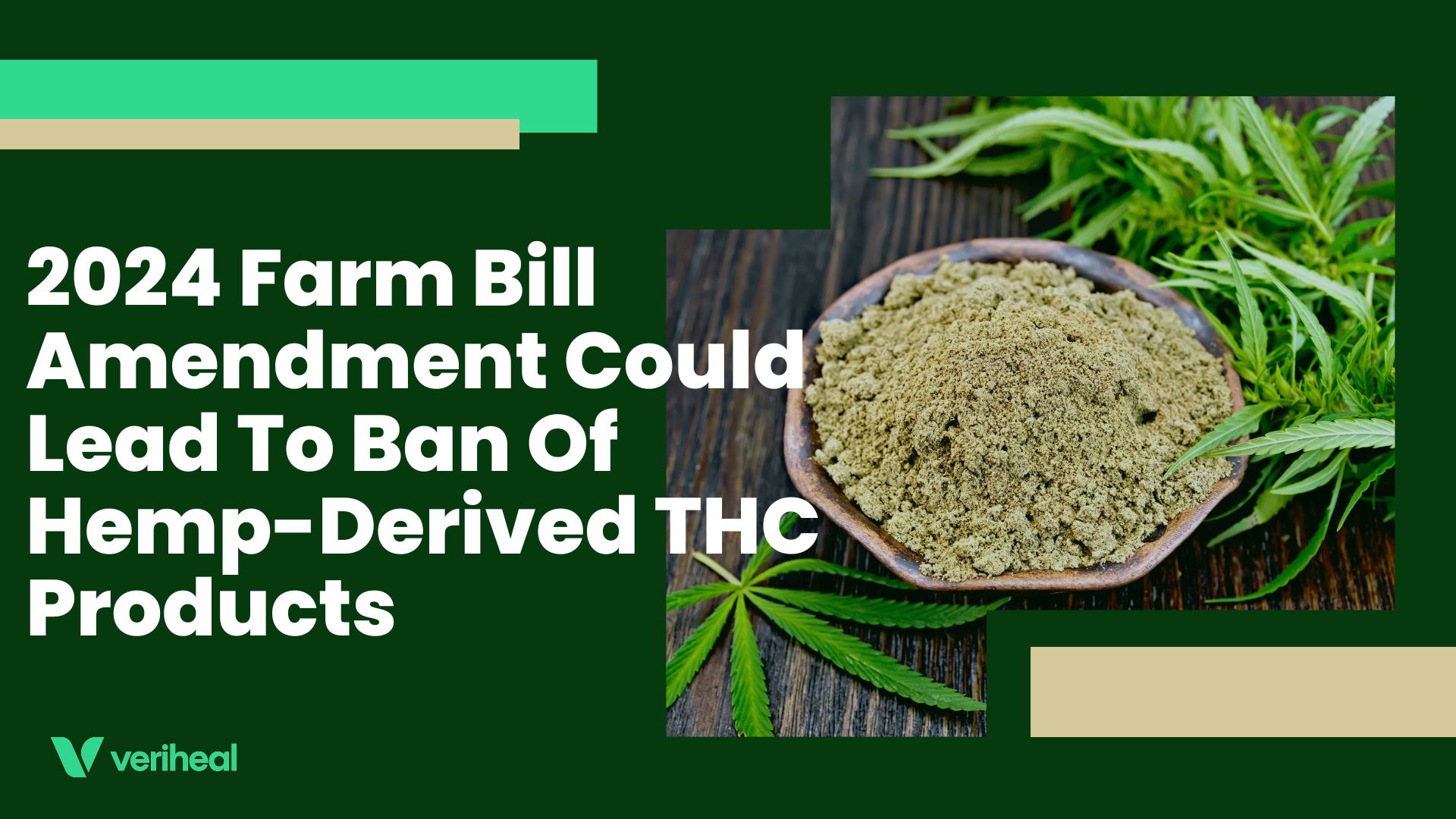The passing of the 2018 Farm Bill led to a massive boom in hemp-derived THC products like Delta-8 across the nation, making these cannabinoids more widely accessible to people in states without legalized marijuana. As long as the products contained less than 0.3% THC by weight, they could be legally bought and sold in most of the country to anyone over 21. And, in the six years since, they have been–but now, some legislators want to put a stop to this market.
On May 17, the U.S. House Committee on Agriculture released an updated version of the 2024 Farm Bill (aka the Farm, Food, and National Security Act of 2024), followed by several proposed amendments on May 23. One such amendment would effectively ban “all ingestible hemp products with any level of THC”–which is disastrous news for the current $28 billion hemp industry.
Under the proposed amendment, which was put forth by Illinois Rep. Mary Miller (R), hemp products would “only include naturally occurring, naturally derived, and non-intoxicating cannabinoids,” effectively eliminating the inclusion of psychoactive synthetic cannabinoids like Delta-8.
She wants to create two categories of hemp: industrial hemp, which does not contain psychoactive cannabinoids and is used for products like fiber, and hemp grown for non-intoxicating cannabinoid extraction.
Under the current iteration of the Farm Bill, all products containing hemp are legal. This includes industrial hemp and products with Delta-9, CBD, and other cannabinoids.
Why You Should Get Your Medical Marijuana Card
Veriheal has satisfied millions of patients nationwide by giving them access to these benefits
- Larger purchase limits
- Peace of mind
- Enhanced legal protection
- Access to higher potency strains
- Save up to 25% on cannabis purchases
- Skip the line at the dispensary
When asked about her proposal, Rep. Miller stated: “My amendment will close the loophole created in the 2018 Farm Bill that allows intoxicating hemp products like Delta-8 to be sold. These products are being marketed to children and sending hundreds of them to the hospital. We must stop teenagers and young children from being exposed to addictive and harmful drugs.”
Unfortunately, this proposal may end up causing more damage to children and families in the long run. One representative, Derrick Van Orden, expressed concern for families that grow and create hemp products to earn a living. “American farmers deserve the certainty afforded with the current definition of hemp. The proposed amendment arbitrarily changes the current congressionally written definition of hemp.”
Naturally, this proposal has led to a flood of opinions from both sides of the argument. The nonprofit Hemp Roundtable released a statement addressing their concerns, saying “We had been assured on several occasions by committee staff and the Chairman personally that they would not support any effort to kill the hemp industry, but unfortunately, the decision was made by the Chairman to use a procedural tactic to avoid a separate vote on the issue. That resulted in the passage of a deeply flawed and deeply objectionable policy.”
There’s good news, however: this proposal is not expected to pass the deeply divided House or Senate. The current hemp industry has a fair amount of bipartisan support, with lawmakers on both sides expressing their desire for sensible legislation that won’t entirely decimate the work done by American farmers. Although some states have already banned hemp-derived THC, many more have embraced it and are working towards making the market safer for everyone.
“Even if the House should pass the [2024] Farm Bill, the differences between House Republicans and Senate Democrats are considerable at this point,” wrote the Hemp Roundtable. “And even if the major issues dividing the parties are resolved, we continue to have many friends in both branches on both sides of the aisle who will work with us to defeat this hemp-killing language.”
Author, Share & Comments








